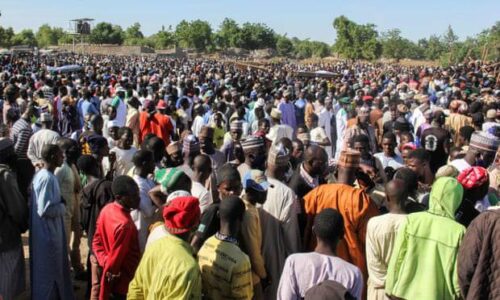
At least 110 dead in Nigeria after suspected Boko Haram terror attack
At least 110 people have been killed in an attack on a village in north-east Nigeria blamed on the Boko Haram jihadist group, according to the UN humanitarian coordinator in the country.
“At least 110 civilians were ruthlessly killed and many others were wounded in this attack,” Edward Kallon said in a statement after initial tolls indicated 43 and then at least 70 dead from the massacre on Saturday by suspected Boko Haram fighters.
“The incident is the most violent direct attack against innocent civilians this year,” Kallon said, adding: “I call for the perpetrators of this heinous and senseless act to be brought to justice.”
The attack took place in the village of Koshobe near the main city of Maiduguri, with assailants targeting farmers on rice fields. The Borno state governor, Babagana Umara Zulum, attended the burial on Sunday in the nearby village of Zabarmari of 43 bodies recovered on Saturday, saying the toll could rise after search operations resumed.
The assailants tied up the agricultural workers and slit their throats, according to a pro-government anti-jihadist militia. The victims were among labourers from Sokoto state in north-west Nigeria, about 1,000km (600 miles) away, who had travelled to the north-east to find work, it said. Six others were wounded in the attack and eight remained missing as of Saturday.
Kallon cited “reports that several women may have been kidnapped”, and called for their immediate release and return to safety.
The Nigerian president, Muhammadu Buhari ,condemned the attack, saying: “The entire country has been wounded by these senseless killings.”
The attack took place as voters went to the polls in long-delayed local elections in Borno state. The polls had been repeatedly postponed because of an increase in attacks by Boko Haram and a rival dissident faction, ISWAP.
The two groups have been blamed for increasing attacks on loggers, farmers and fishermen, whom they accuse of spying for the army and pro-government militias.
Source: The Guardian





